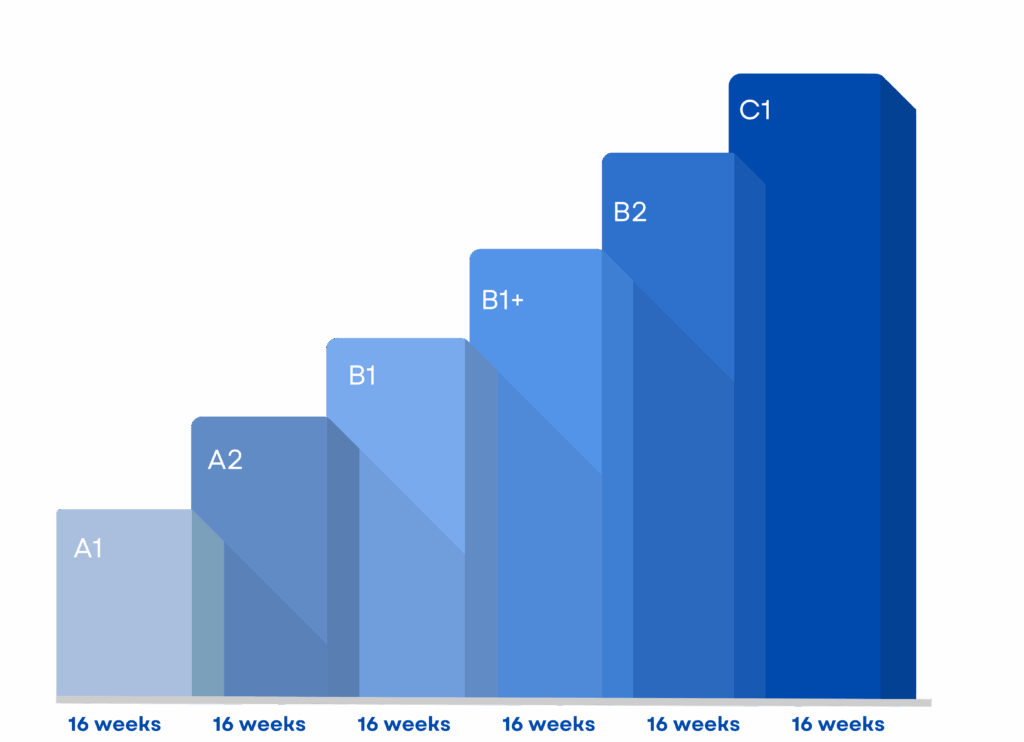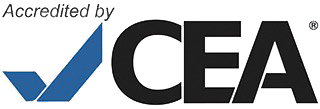


Our Intensive Program is specifically designed for F-1 international students, focusing on integrated language skills with an emphasis on communicative English. It includes targeted practice in vocabulary, pronunciation, and additional speaking exercises. In the final two advanced levels, students will receive greater emphasis on writing and reading, preparing them for our University Pathway Program.
YOUSA Intensive offers 6 levels of General English. Each level takes 16 weeks. Each term has 4 evaluation tests. Our complete Intensive Program has a total of 112 weeks.
We offer open enrollment, allowing students to begin classes any Monday during the term, except during testing weeks. If a Monday falls on a holiday, students will start on the following Tuesday.
Students can communicate and understand basic information in familiar contexts with support. They can ask and answer simple questions, describe themselves and their surroundings with basic sentences, recognize familiar words when spoken slowly, understand very simple texts, and write short messages or fill out forms with personal details.
Students can manage simple and routine tasks with basic communication in familiar situations. They can exchange basic information, write simple notes, link phrases with basic connectors, and draft very simple personal letters. They can describe people, living conditions, and jobs using simple phrases. They can understand clear speech on personal topics main point of brief messages.
Students can effectively use simple language in most everyday situations, such as traveling or dining out, and can engage in conversations on familiar topics without preparation. They can describe experiences, dreams, and plans, provide brief explanations for opinions, and narrate stories or plots. They understand the main points slow radio or TV programs. They can read factual texts on topics of interest, recognize key points and understand descriptions of events and feelings. They can write simple texts and personal letters.
Students can communicate more naturally in various situations, using a wider range of language to express opinions, ideas, and tell stories across different time frames. They speak in formal and informal contexts and express themselves with richer vocabulary. They can describe opinions, hopes, and ambitions with greater fluency, self-correct errors, and articulate more clearly to reduce miscommunication. They understand naturally spoken English, even with different accents, and can follow TV shows or movies. They can produce longer, more formal texts like resumes, cover letters, and reports.
Students can fluently and spontaneously engage with native speakers, actively participating in discussions and defending their views. They can provide clear, detailed descriptions on various topics, support ideas with examples, and discuss pros and cons of different viewpoints. They understand standard speech, complex arguments, lectures, TV news, and most films. In reading, they can greater read articles, reports, and literary prose. They can create clear, detailed texts, essays, reports, and letters that convey information, argue viewpoints, and highlight personal experiences.
Students can express themselves fluently and flexibly in both social and professional settings, skillfully integrating their contributions with those of others. They can provide clear, detailed descriptions of complex subjects, develop sub-themes, and conclude effectively. They understand lectures and discussions on complex topics. They comprehend long and complex texts, including specialized articles and technical instructions. They can produce clear, well-structured texts, detailed expositions on complex subjects, and adapt their style to suit the intended audience.

Upon arrival, students will take a Placement Test (written and oral) to assess their knowledge of the English language. Students will be placed into the class level based on the results of their placement test.
Before starting the classes, students participate in an Orientation Session, in which they are given all student-related materials, including their course schedule and school’s policies.

Hunter’s Creek 12200 Menta St. suite 110, Orlando, Florida – 32837
Metrowest
1507 Park Center Dr, suite 1H, Orlando, Florida – 32835
All rights reserved